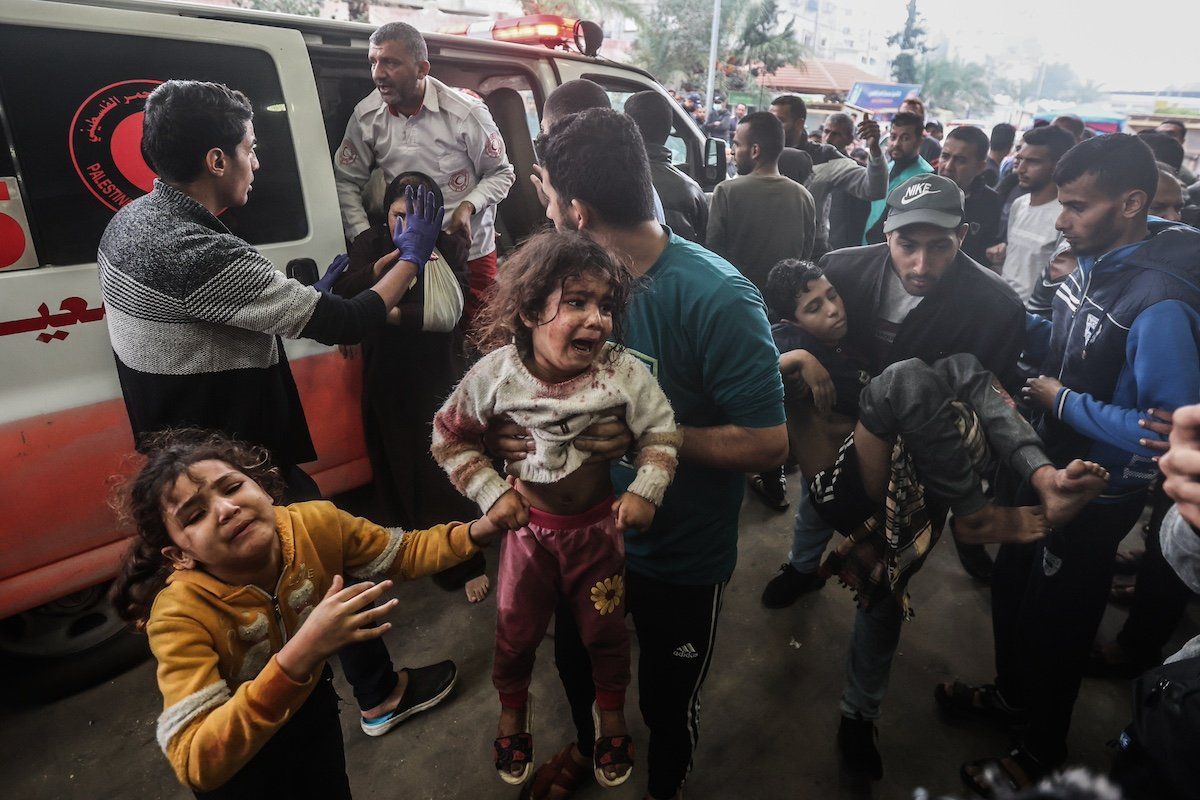Israeli offensive in southern Gaza leads to ‘apocalyptic’ conditions
As Israel’s offensive against Hamas expands in southern Gaza, the UN is warning of “apocalyptic” conditions.
Earlier in the conflict Israel had urged Palestinians to evacuate to Southern Gaza as the IDF pounded targets in and around Gaza City in the north.
But on Tuesday, Israel confirmed its forces had reached the heart of Khan Younis, the largest city in southern Gaza, characterizing the day as the most intense yet since the start of the ground operation. The WHO’s representative in Gaza, Richard Peeperkorn, said conditions are getting “worse by the hour.”
Now Palestinians in Southern Gaza have been ordered to evacuate by Israel, but it’s not clear where they can go.
“Nowhere is safe,” says Martin Griffiths, the UN emergency relief chief, “not hospitals, not shelters, not refugee camps.”
In the face of such criticism, Israel’s foreign minister revoked the visa of the UN humanitarian coordinator, citing the “bias of the UN.”
The Israeli government says it's doing what it can to avoid civilian casualties, while also accusing Hamas of endangering civilians by operating out of heavily populated areas.
In addition to taking steps such as dropping leaflets urging people to evacuate areas impacted by the offensive, the Israeli military has also created an online map it says helps direct civilians to safer areas. But it’s unclear whether this is a reliable option for Palestinians seeking refuge, given there is limited access to internet and electricity in Gaza. The map has reportedly generated both confusion and anger in the territory.
Both Israel and Egypt, which lies across the Rafah border crossing, have declined to accept any refugees. The war, which has reportedly killed nearly 16,000 in Gaza, has so far displaced roughly 1.9 million people in the enclave – over 80% of the population.
Following the cessation of a short-lived truce last week, rising international pressure – including calls from the US for more to be done to protect civilians – has done little to reduce the scope and scale of Israel’s ongoing assault on Gaza.
“The pulverizing of Gaza now ranks amongst the worst assaults on any civilian population in our time and age,” says Jan Egeland, head of the Norwegian Refugee Council.
It is, he says, “a total failure of our shared humanity.”
